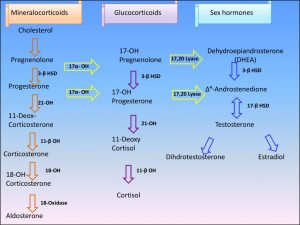By Dr. Shilpi Bhadra Mehta
Good fat. Bad fat. High fat. Low fat. Saturated fat. Trans fat. Traditional fat. Manufactured fat.…Where does the madness end? With the abundance of seemingly contradictory advice out there, it can be beyond daunting to figure out which fats are friends and which fats are foes.
In recent decades saturated fat has been labeled not just our foe but our worst enemy, and the unfortunate fact is it’s all been based on faulty and outdated research from the 1950s by Ancel Keys, research that was riddled with inaccuracies and unreliable methods. Science has finally started to catch up in recent years and has highlighted the missing links connecting saturated fat to heart disease. It has, in fact, shown the reverse: saturated fat is beneficial to heart health.
“The mantra that saturated fat must be removed to reduce the risk of cardiovascular disease has dominated dietary advice and guidelines for almost four decades. Yet scientific evidence shows that this advice has, paradoxically, increased our cardiovascular risks” (Malhotra).
In part 1 of “Saturated Fat: Friend or Foe?” we will get to know our friends: saturated fat and cholesterol.
Saturated Fats Are Your Friend
The demonization of high cholesterol and fat has led to unfounded recommendations to lower saturated fat, increase grains and other processed carbohydrates, and take statin drugs to lower cholesterol.
Studies continue to show what a compilation of 21 studies concluded: “A meta-analysis of prospective epidemiologic studies showed there is NO significant evidence for concluding that dietary saturated fat is associated with an increased risk of CHD [coronary heart disease] or CVD [cardiovascular disease]” (Siri-Tarino). The conclusion also reports, “More data are needed to elucidate whether CVD risks are likely to be influenced by the specific nutrients used to replace saturated fat” (Siri-Tarino). What has the food industry used to replace saturated fat? Carbohydrates and processed sugars.
Saturated fats are beneficial and necessary to proper body function and good health. Benefits include increasing the so-called “good” HDL cholesterol; improving cardiovascular health; enhancing brain function; strengthening bones; keeping the liver, immune system, and lungs healthy; and even losing weight (when combined with a decrease in sugars and refined carbohydrates). Look for quality sources of saturated fat to achieve the best benefits, such as stearic fatty acids.
Stearic Fatty Acids
Stearic acid is a saturated fat. It’s found in plant and animal sources. Dark chocolate is a rich source of stearic acid due to cocoa butter, a natural product found in chocolate. The darker the chocolate, the higher the percentage of cocoa butter and, therefore, the beneficial stearic acid. Stearic acid is also found in foods such as red meat, full-fat dairy,and olive oil.
The major benefit in stearic acid is that it doesn’t raise the so called “bad” LDL cholesterol. (Which isn’t necessarily bad but it’s a bit more complicated, so I’ll cover that in another blogpost).
Stearic acid—yes, saturated fat—is actually good for you and may ward off the conditions many are trying to prevent by consuming a low-fat diet. The key is to move past the mental barricade you constructed using faulty information—the barricade telling you fat is bad—and allow yourself to eat and enjoy those healthy-saturated-fat foods you’ve been avoiding for years.
Cholesterol: An Important Ally
Cholesterol is so important to a healthy, properly functioning body that the body produces its own. The majority of cholesterol, in fact, is not consumed in the diet but is self-produced. “Cholesterol is a steroid found in all body cells and blood and a precursor to steroid hormone production including sex hormones, glucorticoids, vitamin D and bile production. Cholesterol is a repair substance that controls free radical damage. Up to 80 percent of cholesterol is produced in your liver” (Owens).
The truth is, there are many reasons cholesterol is necessary for proper body functioning and good health. It balances our hormones, assists the body in its utilization of vitamin D, aids in digestion, acts as an antioxidant, helps repair damaged cells, feeds the brain, and so much more.
The key is to consume healthy fats, such as stearic acids, that increase better HDL cholesterol and reduce fats that promote excess LDL cholesterol, such as trans fats.
Conclusion
I tell my patients that chickens do not lay egg whites and cows don’t produce skim milk or skim cheese. There’s a reason saturated fat exists in nature as whole foods. Processed low-fat products are man-made lab created out of fears from faulty beliefs. Eliminating saturated fats from our diet is not only making us fatter, it’s increasing our risk of heart disease and other health conditions. In a later blogpost I’ll explain the benefits of full-fat vs. low-fat dairy.
Start your journey to health by incorporating healthy saturated fats – egg yolks, unprocessed red meats, coconut oil, palm oil, full fat dairy, and dark chocolate. Decrease, or eliminate processed foods including refined carbohydrates and sugars. Saturated fats are friends, not foes, so let’s treat them that way.
Join us for part 2 of “Saturated Fat: Friend or Foe?” We will get to know our foes: statins and processed carbohydrates.
References
Briggs, Adam, et al. “A Statin a Day Keeps the Doctor Away: Comparative Proverb Assessment Modelling Study.” BMJ (December 17, 2013): accessed 5/13.15. http://www.bmj.com/content/347/bmj.f7267.
National Institutes of Health. “Omega-3 Fatty Acids and Health” (October 28, 2005): accessed May 13, 2015. http://ods.od.nih.gov/factsheets/Omega3FattyAcidsandHealth-HealthProfessional/.
Owens, Paula. “Some Things to Keep in Mind during Hearth Awareness Month.” Ahwatukee Foothills News (February 14, 2012): accessed May 18, 2015. http://www.ahwatukee.com/community_focus/article_e0b29660-569b-11e1-94e2-0019bb2963f4.html.
Siri-Tarino, et al. “Meta-Analysis of Prospective Cohort Studies Evaluating the Association of Saturated Fat with Cardiovascular Disease.” The American Journal of Clinical Nutrition (November 25, 2009): accessed 5/14/15. http://ajcn.nutrition.org/content/early/2010/01/13/ajcn.2009.27725.abstract
Weatherby, Craig. “Stopping Heart Attacks: Fish vs. Fish Oil.” Vital Choice (April 1, 2015): accessed 5/13/15. https://www.vitalchoice.com/shop/pc/articlesView.asp?id=2256.

